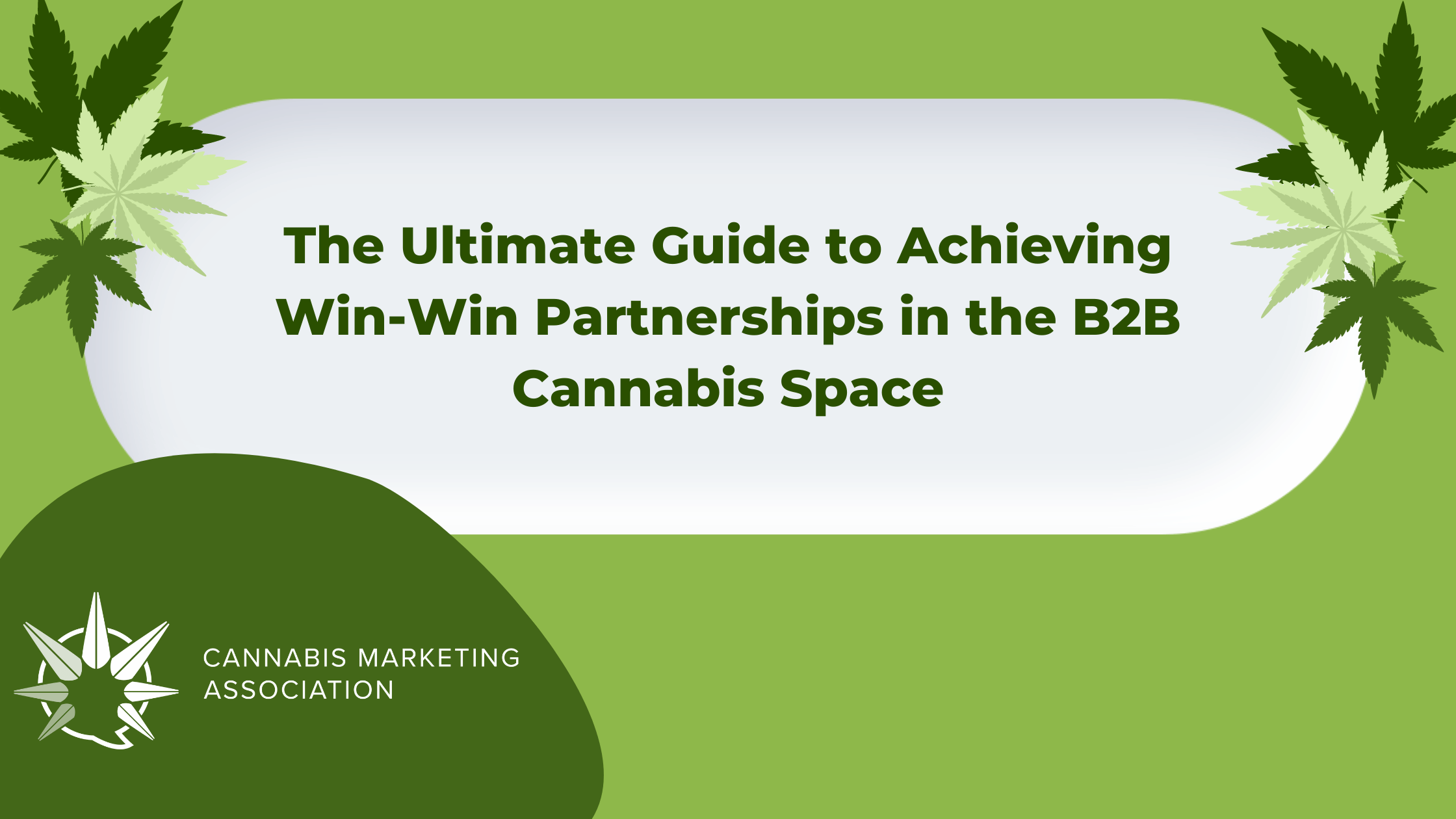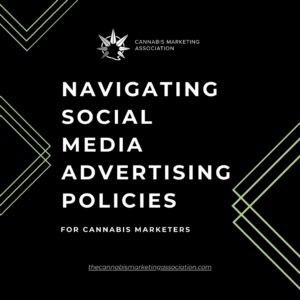In the burgeoning world of legal cannabis, an abundance of opportunities exist for those eager to tap into this vibrant market. As the industry matures, partnerships have become an essential strategy for growth and success. This guide seeks to provide a comprehensive exploration of how to form and cultivate win-win partnerships in the B2B cannabis industry. Strap in as we delve into understanding the dynamics of the cannabis B2B landscape, why partnerships are crucial, and how to create mutually beneficial alliances.
Introduction
The cannabis sector has come a long way from being an underground market to a multibillion-dollar industry. With a variety of roles from cultivation to retail, the industry presents vast opportunities for partnerships. But what does it mean to create a win-win partnership in this context? Let’s start by understanding cannabis B2B and why partnerships are pivotal in this space.
Understanding Cannabis B2B
The cannabis business is a complex one, that like any business, can have a pyramid-like structure. At the top level, we have management, which is often the CEO or owners. Below them are department heads, including dispensary managers, head growers, operations directors, and so forth.
The hierarchy then trickles down to roles within each department, such as assistant manager, lead budtender, supervisors, inventory staff, security, marketing specialists, and more. In the B2B landscape, each of these roles may interact and collaborate with external colleagues to manage business relationships.
When it comes to partnerships, it’s important to determine who is in charge of partnerships and to define outcomes in advance. Large organizations can be susceptible to a lot of back and forth internally and with third parties. Designating a dedicated partnership leader is the first step to creating success.
Why Partnerships are Important in the Cannabis B2B Space
Partnerships are the bedrock of any successful business, and the cannabis industry is no exception. With the diverse range of players involved, forming strategic alliances can foster growth, innovation, and sustainability. For instance, a partnership between a cultivator and a dispensary can ensure a steady supply of product, while an alliance between a manufacturer and a tech firm could lead to the development of innovative products for medical or recreational cannabis users.
Understanding Win-Win Partnerships
In a win-win partnership, both parties derive significant value from the alliance. This could be in the form of shared profits, increased market share, access to new markets, or enhanced brand reputation. The key element here is mutual benefit. Each partner should bring something unique to the table that adds value to the other, resulting in a relationship that is greater than the sum of its parts.
The Importance of Complementary Products/Services
For a partnership to be truly win-win, the products or services offered by each party must complement each other. This means that each partner’s offering enhances the value of the other’s, creating a synergistic effect. We see both necessary and strategic partnerships in the cannabis industry. For example, a cannabis cultivator with high-quality strains may partner with a dispensary known for its customer service and knowledgeable staff. The cultivator provides the product, while the dispensary offers the platform and expertise to sell it. The collaboration between the dispensary and the cultivator is essential for the survival of both businesses as they rely on each other to sustain their operations.
A strategic partnership in the cannabis industry could involve a cannabis cultivation company partnering with a leading wellness brand that specializes in natural remedies and holistic health products. In this partnership, the cannabis cultivator provides high-quality CBD-rich strains, while the wellness brand contributes its expertise in product formulation and marketing. Together, they develop a line of CBD-infused wellness products such as tinctures, balms, and teas.
This strategic partnership leverages the wellness brand’s established reputation and distribution channels to introduce the CBD-infused products to a broader consumer base seeking natural health solutions. The cultivation company benefits from the brand’s reach and expertise, and the wellness brand gains access to a new category of products aligned with its values. This collaboration not only enhances the offerings of both partners but also capitalizes on the growing demand for CBD-based wellness products in the market.
Potential Benefits of Win-Win Partnerships
Win-win partnerships can yield several benefits in the cannabis industry, such as cost savings through shared resources and economies of scale. For instance, a cannabis cultivation facility partners with a processing lab. The facility supplies premium cannabis plants, and the lab excels in extraction. By sharing resources and expertise, they achieve economies of scale. The facility reduces post-harvest costs, while the lab saves on sourcing plants. This partnership results in cost-efficient, high-quality cannabis products. Partnerships can also allow businesses to access new markets and customer segments that would otherwise be out of reach. Additionally, they can foster innovation by combining different skillsets and expertise. Lastly, partnerships can enhance brand credibility and reputation, particularly when established companies choose to partner with emerging ones.
Creating Win-Win Partnerships
Selecting the right partner is crucial to the success of a win-win partnership. You want to look for an organization that shares your values, has a complementary product or service, and possesses a strong, consistent track record, especially as you take into consideration the psychological principle of loss aversion. Loss aversion suggests that people tend to feel the impact of losses more intensely than the benefits of gains. In the context of partnerships, if the wrong partner is chosen, there’s a risk of losses in terms of resources, time, reputation, and potential missed opportunities.
In the cannabis industry, where regulations, market trends, and consumer preferences can change by the minute, partnering with a mismatched or unreliable party could lead to negative outcomes. For example, if a cultivation company partners with a processing facility that lacks quality control and regulatory compliance, the resulting products might fail to meet standards, leading to legal consequences and reputational damage.
On the other hand, choosing the right partner — one with aligned values, complementary strengths, and a solid track record — minimizes the risk of losses. Such a partner enhances the odds of achieving mutually beneficial outcomes, capitalizing on shared expertise and resources. A well-matched partner understands the industry’s intricacies, navigates challenges effectively, and helps leverage economies of scale, ultimately leading to success in the partnership.
By acknowledging loss aversion, businesses in the cannabis industry recognize the significance of careful partner selection to avoid potential setbacks and ensure a win-win collaboration that maximizes gains and minimizes losses.
Ensuring Compliance with State and Local Laws
Given the complex and ever-changing legal landscape of the cannabis industry, it’s critical to ensure your partnership complies with all relevant state and local laws. This includes licensing requirements, regulations on advertising and packaging, and laws surrounding the cultivation, manufacturing, and sale of cannabis products:
- Licensing Compliance: Suppose a cannabis cultivation company is considering a partnership with a new distributor to expand its market reach. It’s important to ensure that the chosen distributor holds the necessary licenses to operate legally in the target market. Partnering without verifying licensing compliance could lead to legal issues and potential shutdowns of operations.
- Product Packaging and Advertising: An edibles manufacturer and a retail dispensary plan to collaborate to offer a unique line of cannabis-infused products. The partnership must ensure that the packaging and advertising adhere to local regulations, including guidelines on labeling, child-resistant packaging, and responsible advertising. Failure to comply could result in fines, product recalls, and reputational damage.
- Cultivation and Manufacturing Regulations: A cannabis extraction lab seeks a partnership with a cultivator to ensure a steady supply of raw materials. However, both parties need to understand the regulations governing the cultivation and manufacturing processes. Compliance with rules about pesticide use, potency limits, and product testing is crucial to avoid legal repercussions and health risks for consumers.
- Multi-State Operations: A vertically integrated cannabis company with operations in multiple states aims to form a partnership with a technology provider for inventory management. Since cannabis laws can vary significantly from state to state, it’s essential to ensure that the partnership’s technology solution complies with each state’s specific regulations to avoid penalties and operational disruptions.
In each of these scenarios, given the intricate legal landscape of the cannabis industry, partnering organizations must prioritize compliance with relevant state and local laws. Consulting a legal expert well-versed in cannabis law ensures that the partnership operates within legal boundaries, mitigates risks, and sets the stage for a successful and sustainable collaboration.
Maintaining Control of Your Brand
While partnerships can offer many benefits, it’s crucial to maintain control over your brand. This means ensuring your partner adheres to your brand standards and doesn’t engage in activities that could damage your reputation. Draft clear partnership agreements that stipulate the rights and responsibilities of each party to avoid misunderstandings down the line. If you’re sharing email or social content on behalf of your partner, it’s important to clearly understand each other’s brands so it is consistently and accurately conveyed to a potentially new audience.
Using B2B Events for Building Partnerships
Events such as trade shows and conferences play a crucial role in the cannabis industry, providing opportunities for businesses to connect, network, and form partnerships. Here, we’ll explore the role of these events, how to follow up on leads, and how to develop an effective sales outreach strategy.
Role of Trade Shows, Conferences, and Events
Trade shows, conferences, and other events offer a platform for businesses to showcase their products, meet potential partners, and learn about the latest industry trends. They provide a unique opportunity to make face-to-face connections, which can often lead to more meaningful and lasting relationships than those formed online. Although following up after an event can prove itself challenging, think of how lucrative, strong, and long-lasting those relationships are you’ve established after a show!
Additionally, attending these events can enhance industry visibility and credibility for your brand. Each year at MJBizCon, the Cannabis Marketing Association partners with NisonCo PR for a party. Our communities of marcom professionals get to mingle and both parties walk away from the event with new audience acquisition and brand exposure.
Following up on Leads from Events
Once you’ve made connections at an event, it’s crucial to follow up promptly. Send a personalized email or make a phone call to express your interest in exploring a potential partnership. Provide specific details about why you believe the partnership would be beneficial and propose a meeting to discuss further. Remember, the goal is to create a win-win situation, so be sure to highlight what you can offer as well.
Developing an Effective Outreach Strategy
An effective outreach strategy is integral to building successful partnerships. This involves identifying potential partners, understanding their needs, and presenting your services or products in a way that addresses those needs. Be persistent but not pushy, and always maintain professionalism. Remember, building a partnership is not just about making a sale; it’s about creating a mutually beneficial relationship that can lead to long-term success.
Conclusion
Winning in the cannabis industry is no small feat, especially given its complex nature and the myriad of laws and regulations involved. However, with the right strategies and a keen understanding of the importance of win-win partnerships, businesses can navigate this landscape successfully. Let’s recap some of the key points we’ve covered.
Recap of Key Points
B2B cannabis industry relationships provide a wealth of opportunities for businesses to grow and succeed through strategic alliances. Understanding what defines a win-win partnership, the benefits it can bring, and how to create one is essential. Choosing the right partner, ensuring legal compliance, maintaining control over your brand, and protecting intellectual property are all crucial steps in this process. The use of the term ‘strategic ally’ rather than ‘partner’ can also help avoid potential legal complications. Lastly, leveraging B2B events and developing an effective sales outreach strategy can aid in establishing valuable relationships in the industry.
Next Steps for Achieving Win-Win Partnerships in the Cannabis B2B Industry
Having gained insight into the dynamics of the cannabis B2B landscape and how to forge win-win partnerships, the next step is to put this knowledge into action. Begin by identifying potential allies that offer complementary products or services, conduct thorough due diligence, and approach them with a clear proposition of what you can offer. Remember, the ultimate goal is to create a relationship where both parties benefit and contribute to each other’s growth and success. A rising tide raises all ships — good luck as you embark on this exciting journey!
Author
Emily Wells, Membership Manager, Cannabis Marketing Association
What started as a perhaps juvenile enthusiasm for cannabis sparked an intense career interest when my time at CU Boulder approached its end, and my professors insisted that the most fulfilling careers combined your innate talents with your truest passions. Through classwork and internship opportunities, my intuitive communication skills and love for cannabis were seamlessly integrated, and my passion for the plant grew tenfold.
In my time at Cannabis Marketing Association, I’ve been given incredible opportunity to grow in my personal role and help scale the organization, all while navigating the intricacies of the cannabis industry and remote work. Now fortunate enough to be part of an industry still in its infancy, I’m eager to amplify my communicative adroitness and ability to establish meaningful relationships, while speaking truthfully and authentically about a plant hidden in the shadows of stigmatization and empowering others to do the same.




